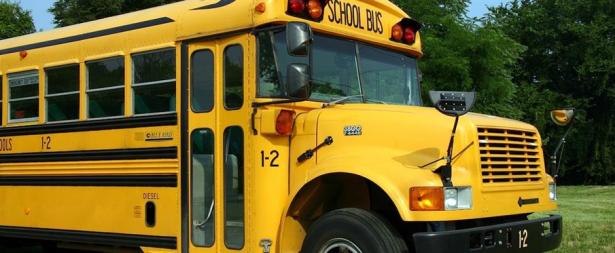Yellow school buses are part of the American streetscape, familiar to families across the US and an easily recognizable symbol the world over.
But the drivers of the vehicles that shuttle America’s children to and from school are now caught up in the wave of labor unrest sweeping across the US in the wake of the Covid-19 pandemic.
Strikes, walkouts, protests or sick-outs among school bus drivers have taken place this fall in many states including North Carolina, New Mexico, Maryland, Florida, Indiana, Georgia Pennsylvania and New York among others.
Marshall explained that school bus drivers are driving buses packed with up to 70 students at once, often having to work multiple routes during a shift as routes were cancelled and consolidated due to the shortages.
“A lot of us have been doing double runs and they’re making it permanent,” said Marshall.
Her school district has offered bus drivers a $50-a-week stipend incentive, which Marshall argued does not make up for the low salaries drivers make, around $19,000 a year, in addition to the stipulations of attendance or having to work extra routes in order to receive the stipend. Drivers are also expected to pay for their own commercial driver’s license, background check and maintain a clean driving record.
“We’ve been begging for better pay. All the counties around us are getting better pay at this point,” added Marshall.
When Covid-19 shutdowns hit the US in March 2020, school bus drivers either quit, were furloughed, laid off, retired or got sick as schools transitioned to online learning.
Though a shortage of school bus drivers was an issue before the pandemic, the problem has worsened in the beginning of the 2021-2022 school year and several school districts around the US are having trouble finding enough drivers.
According to a survey published in August 2021 by the National Association for Pupil Transportation, 51% of school district respondents reported their driver shortages as “severe” or “desperate”. Every region in the US has altered student transportation services as a result of Covid-19. Seventy-eight per cent of respondents said their driver shortages were worsening.
“What’s behind the sick-outs is our frustration with various administrations for their sluggishness in getting fair wages to the working class,” said Zac Campbell, a school bus driver in the district since 2019.
He started at $13.25 an hour, which was raised to $15 an hour, but Campbell lived 30 minutes away from work and spent time between morning and afternoon shifts sitting in his car, with no working heater. He noted that the low wages are part of the state’s failure to fully fund public education in budget negotiations.
“I felt utterly hopeless,” added Campbell. “After working through the lockdowns, delivering technology and lunches and doing basic maintenance in the summer heat, I’m still getting paid just $15 an hour. Considering inflation and the price of gas, it’s not a livable wage.”
Tae Weldon, another school bus driver in the same county, argued drivers are not properly compensated for the license, training and background checks they have to regularly keep up-to-date out of their own pocket.
“The license we possess is worth way more than what they are paying us,” said Weldon. “The school system never asks the drivers’ opinions on how they feel about things going on around the workplace.”
“The problem is not a bus driver shortage, the problem is a bus driver salary shortage. If the salaries reflected the duties of a bus driver, there would be no shortages,” said Chonta Henderson, a school bus driver in Seminole county, Florida, where drivers have threatened to call a sick-out for better wages. “We can’t continue to work as a bus driver and still have to work other jobs to make ends meet. We need to be paid what we are worth.”
Chardo Richardson, the executive director of the Seminole County School Bus Drivers’ Association, emphasized the shortage of bus drivers facing the county is a result of the low wages drivers receive for the work they do.
School bus drivers work split shifts, in the morning and afternoon, around the school schedule which can start as early as 4.30am. They are responsible for supervising dozens of children while driving, exposing themselves to Covid-19. Many bus drivers are frustrated due to shortages, Covid-19 challenges and low pay.
“I think the best way to resolve the bus driver shortage and to really improve the community and transportation that we offer to our children is to definitely raise the wages of our drivers across the nation, across the state and, especially here in Seminole county. Raising the wages will keep those folks that we need here,” said Richardson.


Spread the word